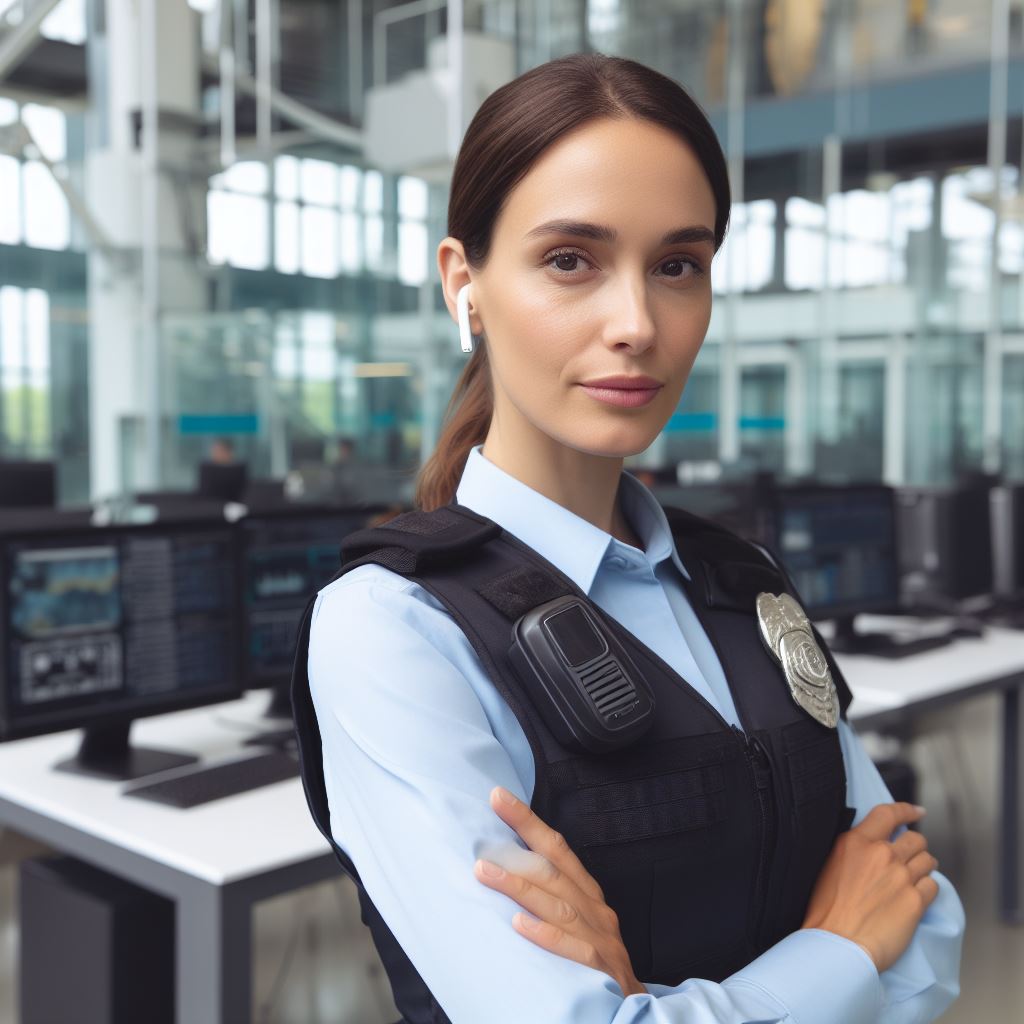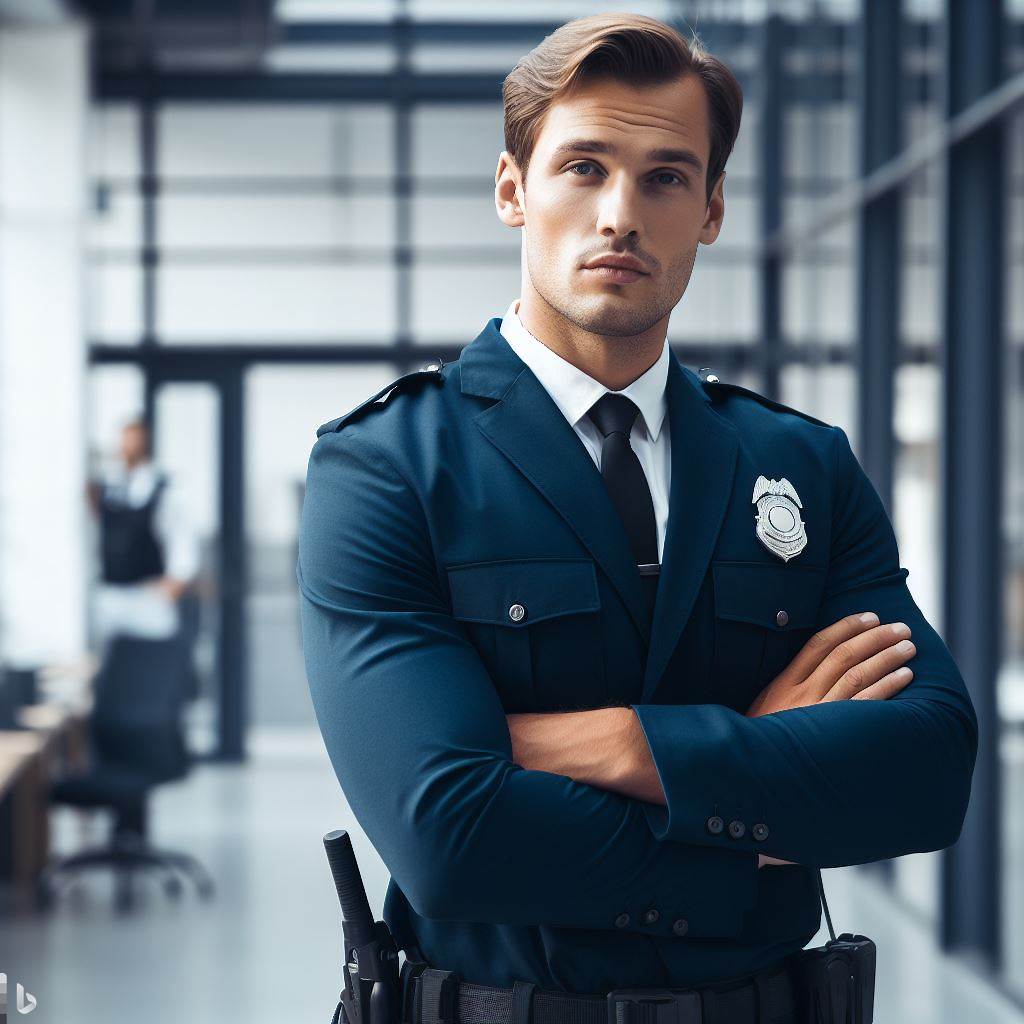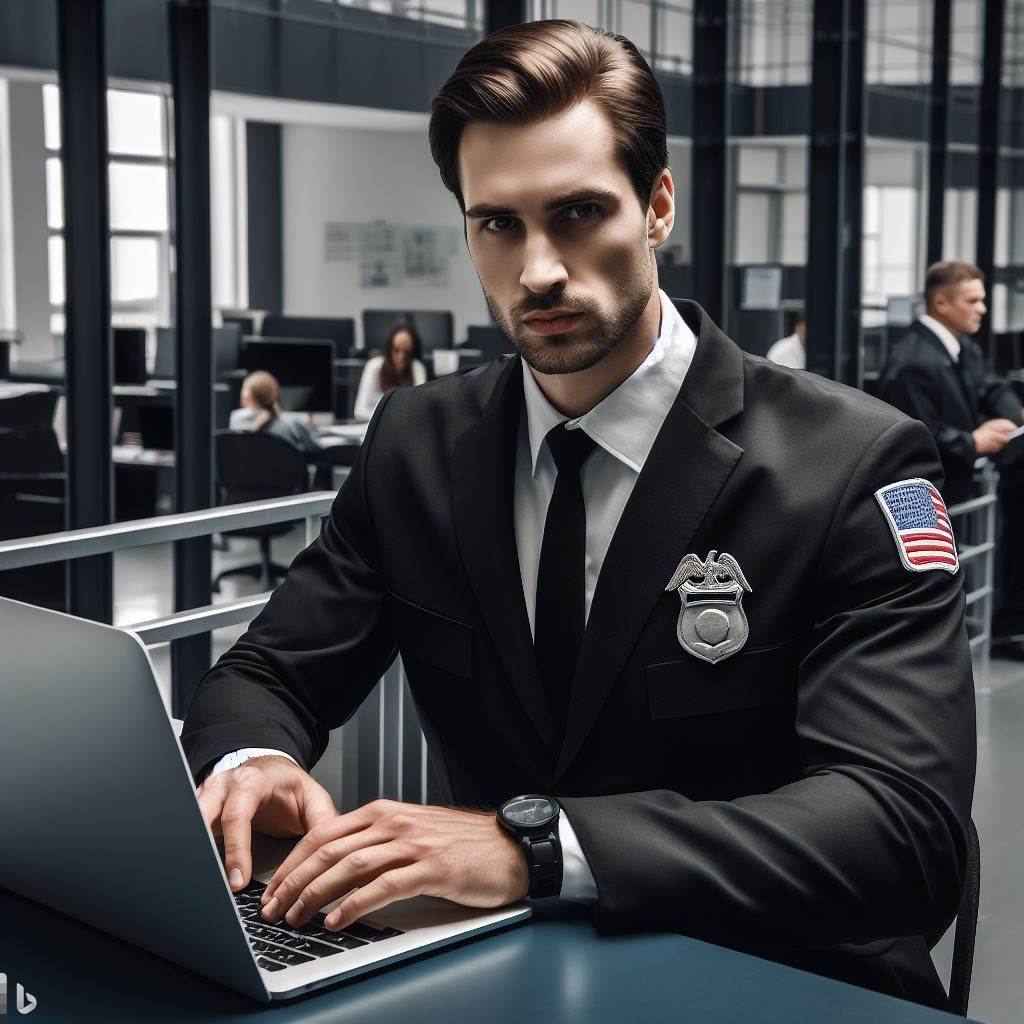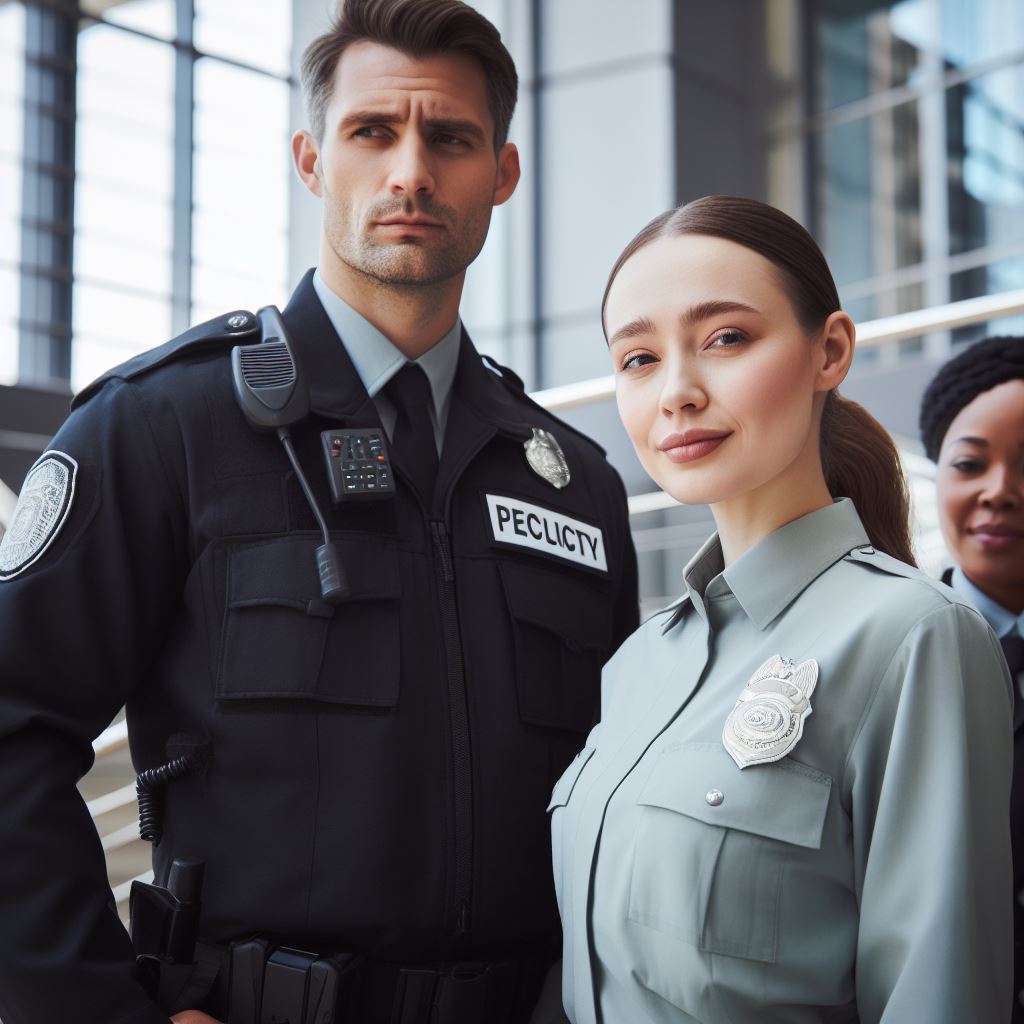Introduction
In the realm of U.S. events and crowd management, security guards emerge as linchpins, orchestrating safety and order with precision and dedication. The Role of Security Guards in Events and Crowd Management
Their significance transcends mere vigilance.
At events, their role extends beyond vigilant observation; it encompasses the assurance of order and safety for all attendees.
They form the backbone of event management, fostering an environment where individuals can participate and enjoy without concern.
This blog post aims to comprehensively explore the intricate facets of security guards’ roles in U.S. events and crowd management.
From proactive measures to responsive actions, their impact is integral to public safety and the seamless execution of diverse events.
This exploration seeks to unravel the layers of their contributions, shedding light on the nuanced responsibilities that underscore their indispensable presence in the dynamic landscape of event security.
The Responsibilities and Duties of Security Guards
General Responsibilities and Duties
- Security guards have the responsibility to protect people, property, and assets.
- They must maintain a vigilant presence and enforce rules and regulations.
- Security guards need to monitor and control access to the event premises.
- They should conduct regular patrols to ensure the overall safety of the venue.
- Emergency preparedness and response is a crucial duty of security guards.
Duties in Events and Crowd Management
- Security guards play a pivotal role in managing large crowds during events.
- They assist in crowd control and ensure order in potentially chaotic situations.
- Security guards manage entry points, checking tickets and verifying participant credentials.
- They oversee the flow of people, preventing overcrowding and potential stampedes.
- Monitoring and addressing unruly behavior and conflicts is part of their duties.
Maintaining a Safe and Secure Environment
- Security guards are essential for creating a safe environment for event attendees.
- They deter potential security threats and criminal activities.
- By their mere presence, security guards instill a sense of safety and reassurance.
- They respond to emergencies swiftly, providing first aid and coordinating with medical personnel.
- Ensuring the overall well-being of attendees is a top priority for security guards.
Communication and Collaboration with Stakeholders
- Security guards need effective communication skills to interact with event organizers.
- Regular communication with event organizers ensures proper security planning and execution.
- Collaboration with law enforcement agencies aids in maintaining law and order.
- Security guards work closely with first responders and other emergency personnel.
- Cooperation among security guards, event organizers, and stakeholders is vital for a successful event.
In essence, security guards hold significant responsibilities and duties in events and crowd management. They safeguard the well-being of attendees, maintain order, and respond to emergencies promptly.
Effective communication and collaboration with event organizers, law enforcement, and other stakeholders are crucial for ensuring a safe and secure environment.
Without security guards fulfilling their duties, events would be vulnerable to various risks, compromising the safety and enjoyment of participants.
Thus, their vital role cannot be understated in creating successful and incident-free events.
Read: The Journey to Becoming a U.S. Firefighter: Steps Explained
Pre-event Preparation
A successful event requires extensive planning and preparation to ensure the safety and security of attendees.
Security guards play a crucial role in this process, conducting risk assessments and identifying potential security threats.
Thorough Planning and Preparation
- Thorough planning and preparation before an event is vital to its success.
- It allows organizers to anticipate and address potential security issues proactively.
- Ensuring the safety and well-being of attendees should be the top priority.
- Effective planning minimizes risks and ensures a smooth flow of the event.
- Addressing security concerns beforehand helps to create a secure environment.
Conducting Risk Assessments
- Security guards are responsible for conducting risk assessments prior to the event.
- They identify potential security threats, such as unauthorized access or possible violence.
- By assessing risks, security guards can develop strategies to prevent and mitigate them.
- Understanding the event’s unique risks allows for effective security measures to be implemented.
- Risk assessments help to ensure the safety of attendees and staff.
Creating an Emergency Response Plan
- An emergency response plan is critical in handling unforeseen incidents.
- Security guards play a vital role in creating and implementing this plan.
- Collaborating with local authorities is essential to coordinate emergency response efforts.
- Having a well-coordinated response plan minimizes confusion and maximizes effectiveness.
- It ensures that all parties involved are aware of their roles and responsibilities in managing emergencies.
Familiarizing with the Event Venue and Crowd Dynamics
- Security guards should familiarize themselves with the event venue and its layout.
- Knowing the access points, exits, and potential blind spots enhances security measures.
- Understanding crowd dynamics helps security guards anticipate potential risks and manage crowd control.
- Being aware of potential bottlenecks and choke points allows for effective management of the crowd flow.
- Familiarity with the venue contributes to a more efficient response in emergencies.
Generally, thorough planning and preparation are crucial before any event to ensure the safety and security of attendees.
Security guards play a significant role in conducting risk assessments, creating emergency response plans, and familiarizing themselves with the event venue and crowd dynamics.
Their proactive approach and collaboration with local authorities contribute to a secure and successful event experience.
Read: Understanding the Roles of Firefighters in U.S. Cities

Crowd Management
In the realm of events and crowd management, security guards hold a significant responsibility. They not only ensure the safety of attendees but also play a crucial role in managing and controlling crowds effectively.
Crucial Role of Security Guards in Managing Crowds during Events
During any event, security guards are at the forefront of crowd management. They act as a visible deterrent to potential disruptive behaviors and help maintain order and safety.
Their presence assures attendees that their security is a top priority.
Security guards have the authority to handle crowd-related issues promptly.
They can respond to emergencies, direct traffic, and coordinate with other event staff, such as ushers and medical personnel, to ensure a smooth and secure environment for everyone involved.
Techniques for Crowd Control and Maintaining Order
To effectively manage crowds, security guards implement various techniques. One common approach is the formation of queues or barricades.
These physical barriers help regulate the flow of people and prevent overcrowding in specific areas.
By strategically placing signage and barriers, security guards can guide event attendees towards entrances, exits, or designated areas.
Clear instructions and crowd-specific information displayed on signage can also aid in crowd control and minimize confusion or potential risks.
Importance of Monitoring Crowd Behavior and Identifying Potential Risks
Monitoring crowd behavior is a crucial aspect of crowd management.
Security guards must stay vigilant at all times and identify potential risks or disturbances that may compromise the safety of the event and its attendees.
By actively observing the crowd, security guards can detect signs of unruly behavior, intoxication, or suspicious activities.
Early identification of potential risks allows security personnel to intervene promptly and prevent any potential harm, ensuring the overall safety and well-being of the crowd.
Role of Security Guards in Diffusing Conflicts and Dealing with Disruptive Individuals
Conflict resolution and dealing with disruptive individuals are essential skills possessed by experienced security guards.
In crowded events, conflicts can arise due to various reasons, such as personal disagreements or heightened emotions.
In such situations, security guards act as mediators, using their training to defuse tensions and resolve conflicts peacefully.
Their presence provides a sense of authority, helping to calm down individuals involved and prevent further escalation.
Additionally, security guards are trained to handle disruptive individuals professionally.
They are skilled in assessing threatening behavior and taking appropriate action while ensuring minimal disruption to the overall event experience.
Essentially, security guards play a critical role in managing crowds during events.
Their responsibilities encompass crowd control, maintaining order, monitoring behavior, and resolving conflicts to create a safe and enjoyable environment for all attendees.
Their proactive presence instills a sense of security and allows participants to focus on the event’s purpose, knowing that their well-being is being safeguarded.
Transform Your Career Today
Unlock a personalized career strategy that drives real results. Get tailored advice and a roadmap designed just for you.
Start NowRead: The Physical Demands: Firefighter Fitness Standards
See Related Content: Police Officer Safety: Gear, Training, & Best Practices
Emergency Situations and Crisis Management
Security guards play a vital role in responding to emergency situations during events
- They are trained to quickly assess and address potential threats and risks.
- With their presence, they deter criminal activities and maintain a secure environment.
- In case of emergencies such as fires, security guards assist in evacuating attendees safely.
- Their quick response can save lives and minimize panic among the crowd.
- Security guards communicate with event organizers and local law enforcement to coordinate emergency responses.
Security guards have responsibilities in guiding attendees during evacuations or lockdowns
- They ensure that evacuation routes are clear and unobstructed for a swift and orderly exit.
- Security guards provide guidance and directions to help attendees find designated assembly areas.
- During lockdowns, they take charge of securing entrances and restricting access to the venue.
- Their presence helps maintain order and prevent panic among attendees.
- Clear communication and instructions from security guards ensure a smooth evacuation process.
Training security guards in first aid and CPR is essential for immediate response to medical emergencies
- They can provide initial medical assistance until professional medical help arrives.
- Security guards can quickly identify potential medical issues and take appropriate action.
- Having basic medical knowledge enables them to administer first aid and perform CPR if necessary.
- Immediate response can significantly increase the chances of survival and recovery.
- Regular training updates are crucial to keep security guards well-equipped for medical emergencies.
Collaboration with local law enforcement and emergency services ensures effective crisis management
- Security guards maintain open lines of communication with law enforcement agencies and emergency services.
- They provide timely information about potential threats or ongoing incidents.
- Collaboration allows for a coordinated response and the allocation of appropriate resources.
- Joint training exercises and drills enhance the coordination between security guards and other agencies.
- Working together, security guards and local authorities can address crisis situations effectively.
Most importantly, security guards play a crucial role in emergency situations and crisis management during events.
Their trained response, guidance during evacuations, first aid knowledge, and collaboration with law enforcement ensure the safety and well-being of attendees.
Effective crisis management requires the continuous training and coordination of security guards with local authorities.
By fulfilling their responsibilities, security guards contribute to the overall security and success of events in the United States.
Read: Diversity in U.S. Fire Departments: Current Trends
Conclusion
Main points discussed regarding the role of security guards in U.S. events and crowd management.
Throughout this blog post, we have explored the crucial role played by security guards in events and crowd management in the United States.
We have learned that security guards serve as the first line of defense in ensuring the safety and security of event attendees.
They are responsible for monitoring and controlling access to the event venue, enforcing safety rules and regulations, and handling potential security threats or disturbances.
Significance of their duties in maintaining safety and security for event attendees
The duties performed by security guards in the context of events and crowd management are of utmost significance.
By providing a visible presence, they create a sense of security and deter potential criminal activities.
Their quick response to emergencies and effective communication with law enforcement agencies ensure that event attendees can fully enjoy their experience in a secure environment.
In the end, the role of security guards in U.S. events and crowd management cannot be overstated.
They are vital components in maintaining the safety and security of large gatherings, ensuring that attendees can focus on the event without concerns for their well-being.
It is crucial for us all to appreciate and respect the tireless efforts of security guards who work diligently behind the scenes to guarantee a successful and secure event experience for everyone involved.




